The year is 2044, we've reached 2.2 degrees of global warming, and the crisis is beyond control.
Join us for a post-mortem as we look back on ideas from the 2024 Water Climate Discussion and determine whether any of the proposed ideas could have truly made a difference.
In 2024, leading water professionals convened to discuss potential radical changes that could be implemented, including reforming food systems, building sponge cities, reversing water cycles, implementing waterless sewage systems, improving household water management, and enforcing accountability for all polluters. This online gathering brought together the brightest minds in the water sector to brainstorm whether and how such radical changes could be realized.

7 November 2044 - Global Warming at 2.2°C:
Water Shortages and Flooding Threaten Major Cities
London, UK – As the world officially reaches 2.2°C of global warming above pre-industrial levels, many cities, including London, are grappling with severe water shortages. Despite a milder summer compared to previous years, London’s water system remains under strain. Reservoir levels in the Queen Mary Reservoir, one of the city’s largest, have fallen to 17% of capacity—its its lowest recorded level. Water rationing measures, introduced in August, are still in place, with household water usage restricted to 60% of normal levels, and these limits are expected to remain through winter. Thames Water has intensified groundwater abstraction and desalination efforts, but this has not fully compensated for the depletion of surface water sources.
Across the UK, drought isn’t the only issue. Western England and Wales are dealing with severe flooding. Along the Severn and Wye rivers, high rainfall has caused major flood events in several towns. In Shrewsbury, the Severn breached its flood barriers again, leaving parts of the town centre under water. The historic waterfront is facing extensive damage, with several businesses forced to close as waters exceeded 6 metres. Further downstream in Tewkesbury, where the Severn meets the Avon, floodwaters have submerged homes and streets, leading to evacuations.
On the Wye, Monmouth has been heavily impacted, with several areas cut off due to the rapid rise of floodwaters. The town’s floodplains have been overwhelmed, and emergency services are actively relocating residents from low-lying areas, where water levels continue to rise.
Meanwhile, other European cities such as Madrid and Athens face their own water crises, with reservoirs across southern Europe dropping below critical thresholds. Despite measures such as expanded desalination and water recycling projects, these have been unable to fully offset the impact of prolonged dry seasons.
In the United States, New York City is facing regular coastal flooding, with high tides and storm surges inundating lower Manhattan. Similar scenes are unfolding in Jakarta and Dhaka, where rising sea levels and recurrent flooding have displaced thousands.
Despite ongoing efforts to adapt infrastructure, the escalating impacts of 2.2°C warming are becoming evident. “The strain on urban water systems and increased flood risks highlight the urgency of climate adaptation,” said Dr. Elara Voskel, a leading climate scientist. “We need faster global action to protect vulnerable populations from these escalating threats.”
Discussions
Food & Water
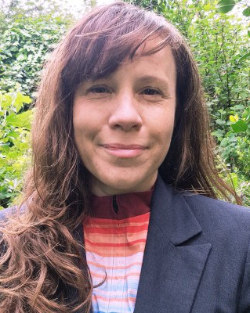 Amanda Lake
Amanda Lake Head of Carbon and Circular Economy – Water Europe, Jacobs
Amanda is a Chartered Chemical Engineer and has 22 years’ experience in the water sector. At Jacobs she is proud to be part of Jacobs 50 strong process engineering team in the UK and Ireland and European lead for wastewater. Her global work covers process engineering of sustainable solutions in water – with a particular focus on taking climate action through reducing direct emissions of nitrous oxide and methane and quantifying the carbon impact of the water sector’s engineering programmes. She is also passionate about delivering circular economy projects from technology solutions at sites through to strategic frameworks to deliver the required transition for a safe future, within planetary boundaries.
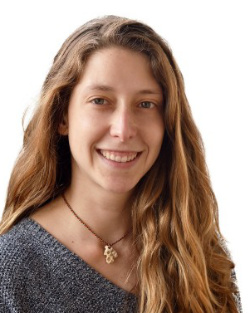
Laura Rovira Alsina
Post-doctoral researcher at the University of Girona (UdG)
Laura is a post-doctoral research technician at the University of Girona, specializing in Microbial Electrochemical Technologies for alternative protein production. She completed her Ph.D. in December 2022, focusing on strategies for CO2 bio-reduction. As a recipient of the Green Talents Competition, Laura emphasizes sustainable practices in her research to mitigate air and water pollution while transforming residues into valuable substrates. She has published 9 articles and presented her work at international conferences, actively supervising students. Her involvement with the International Water Association underscores her commitment to advancing innovative solutions for environmental challenges.
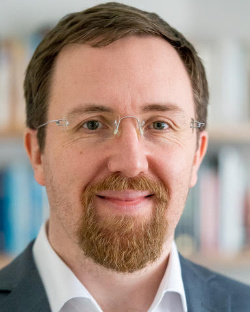 Martin Currie
Martin Currie Founder Aqueum, andeye & AMYBO
Martin is a Biochemical Engineer working on altProtein for human consumption with AMYBO.org and an independent potable water quality and treatment specialist with Aqueum. He founded andeye at the start of the COVID-19 pandemic, in order to improve the quality of online conferences and help decarbonise and democratise conferences post-COVID. andeye are hosting this discussion from their studio near Glasgow.
Sponge Cities
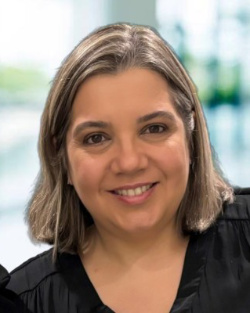
Daniela Bemfica
Director of Strategic Programmes at IWA
Daniela Bemfica is an experienced professional specialising in urban water management, strategic planning, and project execution. She holds a Bachelor’s degree in Civil Engineering and a Master’s degree in Water Resources Engineering and Environmental Sanitation. Currently, she serves as the Director of Strategic Programmes and Engagement at the International Water Association (IWA) Secretariat, where she oversees a diverse portfolio of programmes, including the Inclusive Urban Sanitation and Climate Smart Utilities initiatives, and the Digital Water Programme. Previously, she held key roles in public service, including a tenure as the Director-General of the Porto Alegre City Stormwater Department in Brazil, where she successfully secured and managed funding for large-scale stormwater and wastewater projects.
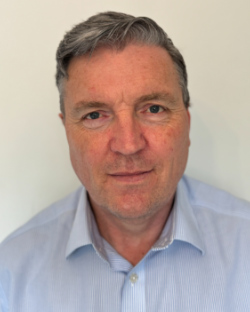
Mark Smith
Director (Water Sector), RSK
Mark is a global water sector specialist and has worked extensively in the water, wastewater and biosolids industries throughout his career.
A chemical engineer by profession, he is passionate about process engineering and innovation. As CEO of the Water Research Centre, Mark pioneered many different innovations within the sector and was responsible for driving its acquisition by RSK in August 2020.
Since then, he has taken up the role of RSK Group director for water and is looking to work internationally with like-minded partners and associates to help them deliver the UN Sustainable Development Goals through deploying RSK’s unique abilities to get things done in difficult climates.
Mark believes that we have the solutions to most of the world’s water problems; we now need to find the will to implement them.
Reverse Water Cycles
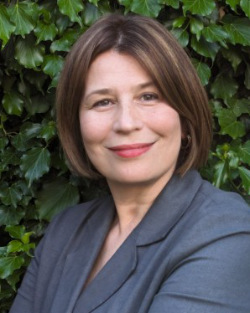
Ana Mijic
Professor of Water Systems Integration, Imperial College
Ana's expertise is in advanced modelling and analysis of processes, planning, resilience and economics of water systems. Ana is leading the development of novel systems analysis approaches and methodologies to inform regulatory bodies and industry about the role and value of people, cities, natural capital and technological innovations in defining water security and sustainable development under future uncertainties.
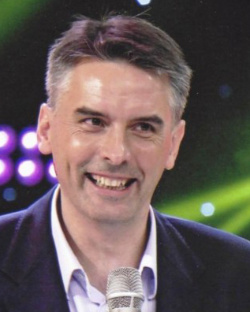
Simon Spooner
Associate Director, at Atkins
Simon Spooner is an environmental scientist applying scientific methods combined with social, political and regulatory models to address the challenges that we face and help build better infrastructure systems.
He leads in AtkinsRéalis technical work in Water quality and Water Resources management. Currently his main day job is applying the SimBasinQ river basin water quality model, which he developed himself, to address the impact of wastewater discharges on our rivers; and developing nature based catchment solutions to flooding, water quality, water resources, biodiversity and carbon sequestration.
He was a senior expert advisor on the UK health Security Agency programme to develop wastewater based epidemiology responses to the Covid-19 pandemic.
Looking to the future he has developed the Combustion Transition Framework, an innovative approach to integrating GHG emissions reductions and land-use based regeneration of natural processes with a framework of metrics and economic tools to facilitate an accelerated transition to net-zero and on to true sustainability.
Over 30 years as a consultant with Atkins, and before that Mott MacDonald, he worked about half his time overseas, mostly in China, on major World Bank, EU and UK government projects in urban environment development, energy systems and environmental policy. He was Technical Director for water and environment for Atkins in China delivering urban planning projects. More recently he worked in partnership with KPMG for the UK FCDO in China on the development of environmental governance processes and access to international financing for infrastructure projects under China’s Belt and Road programme. In the UK he mostly worked for water companies in wastewater and river basin management and in water industry regulatory processes.
Honorary Professor of Nottingham University in UK and China, regular guest lecturer Cambridge, Tsinghua and many Chinese Universities. Author of reference books on water and environmental regulation in English and Chinese. Advisory Board Member for UK and EU research projects.
What he really enjoys is building on the latest science and digital systems to innovate and find simpler integrated solutions to complex problems.
Waterless Sewerage
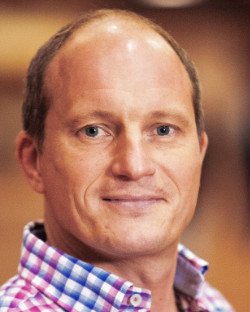
Piers Clark
Isle Group Founder and Chairman
Piers is Chairman of the Isle Group Ltd. Isle is a technical, specialist, water consultancy, employing over 110 people and with offices in the UK, the Netherlands, Italy, Germany, the USA, Australia, Singapore and Abu Dhabi. Isle works with over 250 utilities around the world helping them identify and adopt new technology.
Piers was previously the Managing Director for the $1bn private equity fund Global Water Development Partners (GWDP), a Blackstone portfolio company. From 2010-14 he was the Commercial Director at Thames Water, the largest of the UK water companies. Piers was responsible for all of Thames Water’s non-regulated business activities. Piers also served as Interim Asset Management Director for Thames Water. Prior to joining Thames Water, Piers was Managing Director of Mouchel’s Regulated Industries leading a team of 3,000 staff providing engineering consultancy and operational maintenance services in the water, energy, environment and rail sectors.
In 2006, Piers helped establish an innovative funding mechanism for technology companies, called TAG (Technology Approval Group). TAG bridges the gap between venture capital investors and the water company end-users and has resulted in over $1bn being invested in water-related cleantech companies in recent years.
He has held a number of Board and NED roles. He has a PhD in Civil Engineering.
Household Water Management Measures
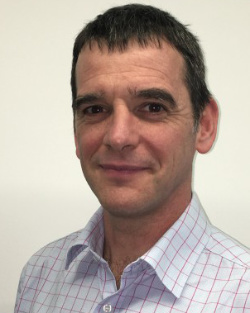
Stephen Kennedy
Head of Digital and Innovation at MWH Treatment
Stephen is an engineer, a successful leader of people in an operations environment, and a team player, who takes personal responsibility for the corporate bottom line and is comfortable and experienced dealing at Board level.
Success in each stage of his career development through Client (Southern Water), Supply Chain (Ovivo) and Contractor (MWH Treatment Ltd) organisations has led to further seniority and broader commercial responsibilities; as a senior / executive manager with personal Board interactions.
Stephen's career progression gives him a unique insight into the pressures throughout the supply chain and enables him to understand from personal experience how each stakeholder can be impacted by the others.
Stephen has developed the strategic direction of new business units and, through applying change management techniques, has delivered success in the regulated and non-regulated water sectors throughout the UK and Europe, Middle East and Africa creating new business streams, introducing new technologies in the market and securing new clients. He is comfortable speaking to large audiences, having presented at a number of international conferences, and Chaired and summarised specialist Conference round table discussions.
Stephen's current focus is to change the way we deliver projects embracing digital engineering to deliver smart integrated solutions based around standardisation and Design for Manufacturing Assembly to unlock efficiency, improve quality and reduce the Health and Safety risks in our industry. For the past 3 years he has driven change in both manufacturing and client based environment and delivered projects fabricated offsite for assembly onsite.
Stephen believes that listening, clear communication and a desire for change are key levers for success. If these are aligned to a culture which matches the strategic direction, where success is praised and challenge is received constructively, teams can achieve the most optimistic business targets.
Polluter Pays+
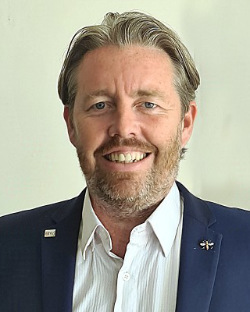
Tom Williams
CEO Enebio Ltd
Experienced Director with a demonstrated history of working in the utilities industry. Strong consulting professional, skilled in Negotiation, Sustainable Development, Water Treatment, Environmental Awareness, and Spanish.

